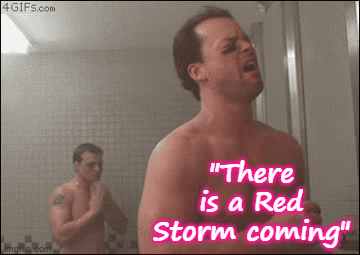I answered it in the first sentence of my reply. What do you think the delegates of the Philadelphia convention were doing in 1787? Here is an excerpt from
https://fee.org/articles/america-s-republic-how-the-great-experiment-came-about-and-how-we-keep-it/
Forging a New Order
Then came the Philadelphia Convention of 1787. No greater assembly of genius, wisdom, accomplishment, and experience has ever been held for the purpose of creating a government and securing for its people the blessings of liberty.
The sagacity of George Washington, who presided over the Convention, was never more apparent than when he said, “If, to please the people, we offer what we ourselves disapprove, how can we later defend our work? Let us raise a standard to which the wise and honest can repair; the rest is in the hands of God.”
Here, in a nutshell, is what the delegates to the Convention did—and they did it not just for themselves and their generation, but for all generations of Americans:
They reaffirmed that America would be a republic, not a majoritarian democracy. They understood that there are many things that simply should not be subject to popular vote, like basic human rights to life, liberty, and the pursuit of happiness.
They fashioned a government of limited functions and powers. Their intent was to bind it down with the chains of a Constitution. They inserted dozens of “thou shalt nots,” as I call them, all aimed squarely at government.
They crafted an ingenious “separation of powers” that takes two major forms:
A system of federalism in which many powers are dispersed to the states;
Three distinct branches of a new federal government, each with its own prescribed powers and limitations (executive, legislative, judicial)
They created a network of checks and balances throughout the new government. Accordingly, the authority and powers of the three branches are balanced and checked by one another. For example, the President can veto laws passed by Congress. Congress, on the other hand, can withhold funds from executive agencies. Although Congress can pass legislation, the Supreme Court has the power to declare certain laws unconstitutional, making them null and void. The President appoints federal judges and various civil servants, but the Senate can refuse to ratify major appointments such as those to the Supreme Court. The federal judiciary can find individuals guilty of crimes, but the President has the power to grant pardons and reprieves.
They added a Bill of Rights, guaranteeing basic freedoms including speech, press, assembly, and the right to bear arms. To make sure everyone knew that the individual has other rights besides those listed (or “enumerated”) in the Constitution, they added a Ninth Amendment, which states that “The enumeration in the Constitution of certain rights, shall not be construed to deny or disparage others retained by the people.” To maintain the sovereign integrity of the states, they included numerous provisions throughout the Constitution, including the important Tenth Amendment, which states, “The powers not delegated to the United States by the Constitution, nor prohibited by it to the States, are reserved to the States respectively, or to the people.”
Have We Lost Our Way?
In the more than two centuries since the Constitution was written, the federal government in America has grown far beyond what our Founders ever intended. That raises an important question: For the purpose of keeping government limited, has the Constitution failed us, or have we failed the Constitution? That’s a discussion I think we definitely ought to have, and the deeper the better. I don’t believe even the Founders themselves would argue that assumptions should never be questioned. I for one would love to be able to turn the clock back to 1787 for a moment and add some additional strictures on government the Founders didn’t incorporate or envision.
Nonetheless, in the pantheon of documents of governance, the Constitution surely must rank as one of the greatest gifts ever bestowed by one generation upon the next and future generations. With liberty as their watchword, these brave and wise men, who had been through the crucible of war and who had put their lives, fortunes and sacred honor on the line, produced a document unlike any other ever crafted before or since. But the words of Benjamin Franklin as he was leaving the Convention should remind us that it isn’t enough to sustain liberty to simply declare it in writing. A woman supposedly asked, “Mr. Franklin, what form of government have you given us.” His reply: “A republic, madam, if you can keep it.”
Can we keep it? True, it’s lasted more than two centuries already, but not without injury and frequent assault. Whether it survives and is strengthened for two more centuries, or becomes weakened, neglected, and overruled all depends, as Franklin implied, upon us. Liberty is never guaranteed or automatic. It won’t be there for the next generation just because it was there for the last. It will be there if—and only if—the people themselves live it, breathe it, teach it, and defend it at all costs.
Read the constitution. It establishes and defines the American republic. I warn you, it was crafted by a pretty cerebral bunch. Got a lot of big words and ideas that are foreign to you, like "limited government", and "freedom" and "liberty". One thing it hasn't got though, is any mention of "democracy".

 Once Joe and Warnock got their votes they were gone like a fart in the wind, just like the stimulus money they didnt get when she was throwing a hissy fit in here a couple years ago about demanding her handout. . Her fear seeps through with every post. This is her VENTING thread......
Once Joe and Warnock got their votes they were gone like a fart in the wind, just like the stimulus money they didnt get when she was throwing a hissy fit in here a couple years ago about demanding her handout. . Her fear seeps through with every post. This is her VENTING thread......
